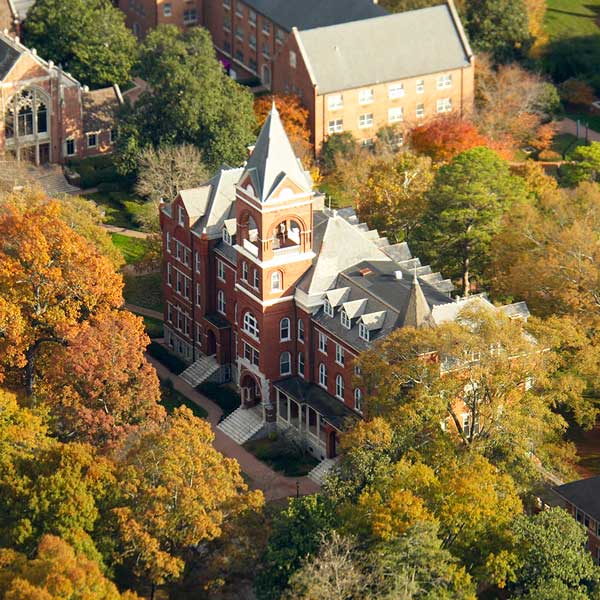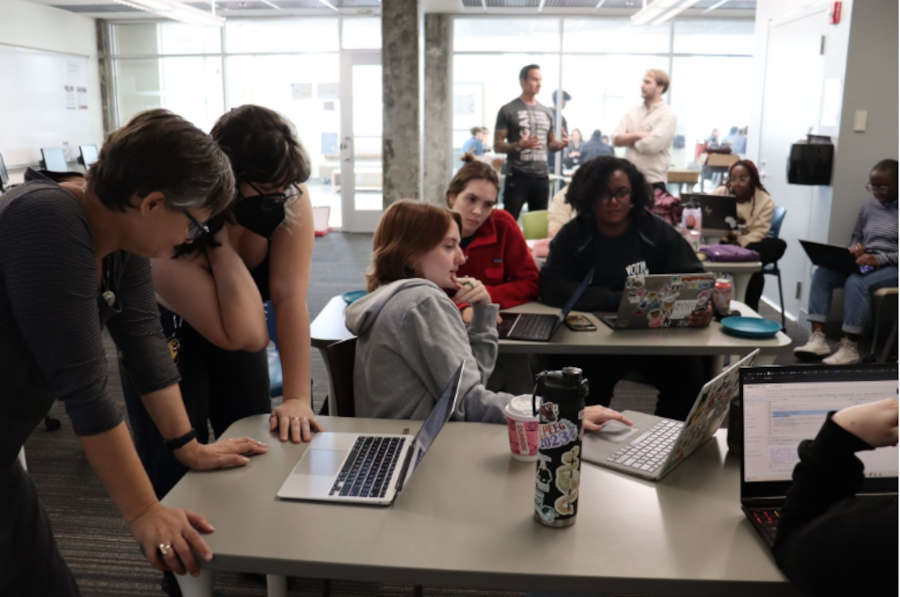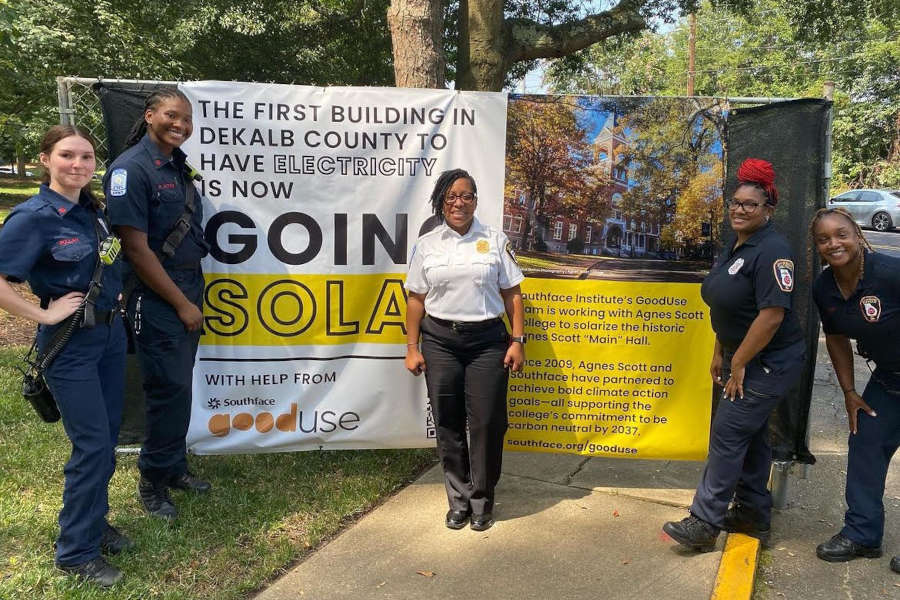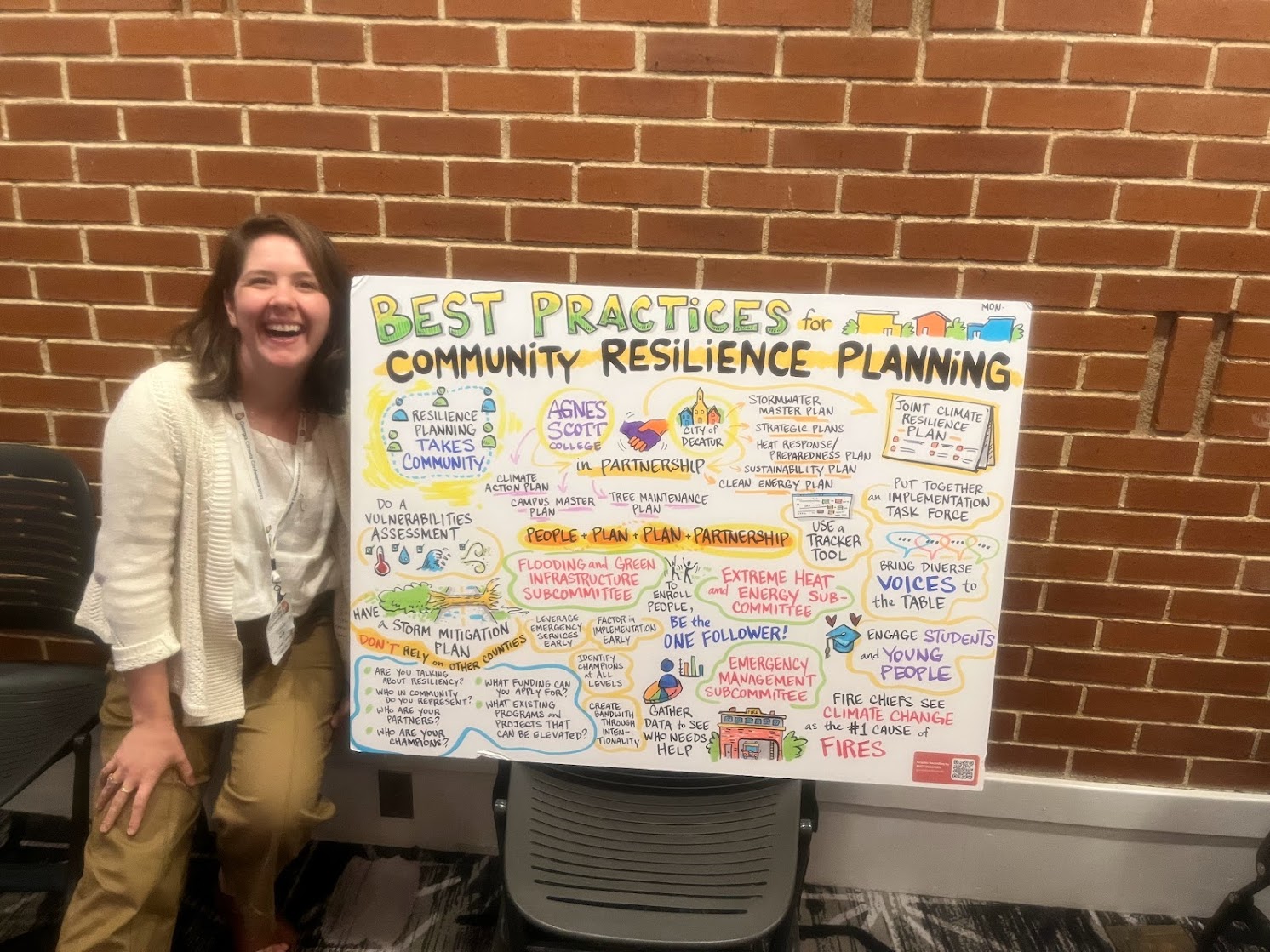In February 2021, Agnes Scott and the City of Decatur, Georgia completed a joint Climate Resilience Plan (CRP). The purpose of the CRP was to identify together the most pressing impacts of climate change anticipated in this region and to outline the strategies for addressing these impacts, both in terms of preparation and response.
BACKGROUND ON CLIMATE CHANGE
As global average temperatures increase, the Southeastern United States is expected to have some of the largest economic losses from climate change nationwide. This region includes many of the fastest-growing urban areas in the country, including the City of Decatur, the City of Atlanta, and Dekalb County. It is projected climate change will cause more and longer heatwaves in the region, which will lead to increases in heat-related illnesses and deaths. The region is already experiencing increases in heavy rain events, which is compounding the decline of the region's infrastructure and leading to critical compromises in the region's drinking and wastewater infrastructure. And we know these impacts will disproportionately affect people of color, low-income households, women, and children. As the world feels the impacts of climate change, there is an imperative at the local level to build community resilience to respond to these impacts.
SUMMARY OF THE CLIMATE RESILIENCE PLAN
Agnes Scott College and the City of Decatur have joined together to leverage the power of community collaboration by designing and implementing a joint Climate Resilience Plan. The CRP draws on existing commitments and programs of both partners and sets out new strategies with the most promise for ensuring the resilience of the community for both the college and the city. The CRP is meant to give the college and the city the ability to work together, move beyond limited funding and incentives for climate response in Georgia, create new solutions, and jointly find funding support when needed.
For Agnes Scott, this joint CRP takes the college to a new step in its climate commitment. The college has been on the path toward carbon neutrality since 2007, focused primarily on energy conservation and efficiency, with a more recent focus on renewable energy. As of FY2023-24, the college has reduced its carbon footprint by over 50% and is on track for neutrality by 2037. Reaching these goals will be bolstered greatly by the partnership with the City of Decatur outlined in the CRP. The college's carbon neutrality goal and Climate Action Plan were leveraged throughout the CRP planning process and serve as important guides for the CRP's goals and strategies.




